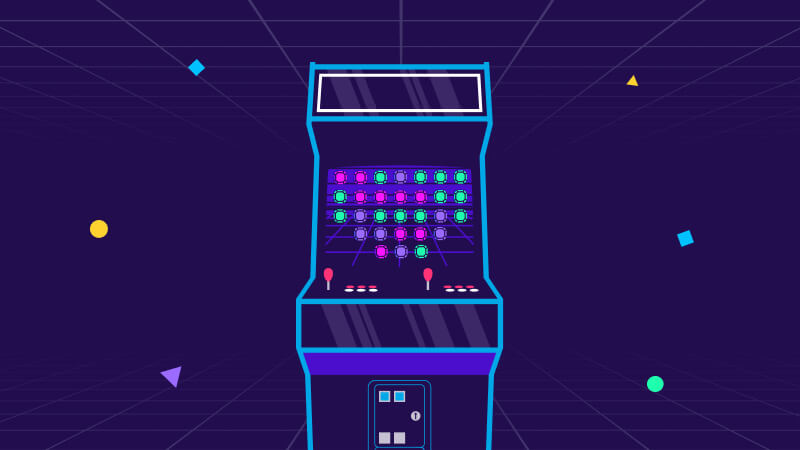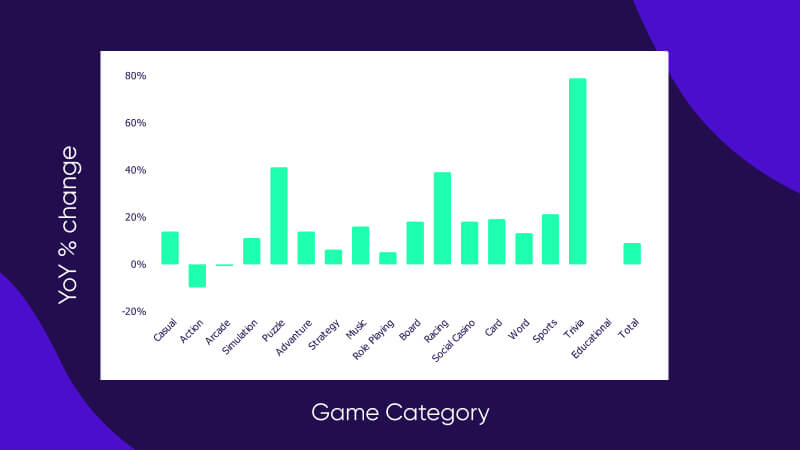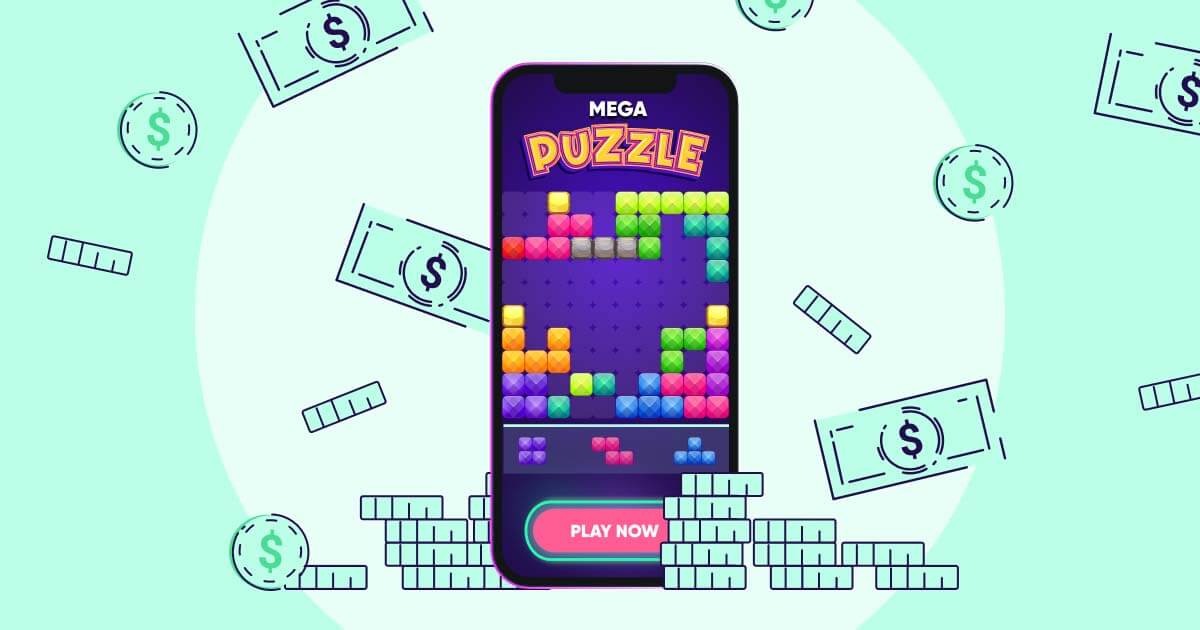
Staying ahead of the game: Mobile gaming challenges, trends, and opportunities in 2022

NFTs. Blockchain gaming. Metaverse. A brave new world of mobile gaming is unfolding before our eyes. But are these just mere buzzwords, and what do they actually mean for the future of gaming on mobile devices?
That’s exactly what me and Michail Katkoff, the CEO of Savage Game Studios, talked about in our fireside chat, Ahead Of The Mobile Game.
Michail, founder of one of the biggest mobile gaming blogs and podcasts in the world – Deconstructor of Fun – gave his unique insight on the current and future state of play in the mobile games industry.
You can watch our chat now on the video here – and read on for a summary of Michail and I’s discussion.
The biggest challenges of mobile gaming in 2022
2021 wasn’t exactly an easy ride for the mobile industry, with an ongoing pandemic and Apple’s radical privacy changes presenting plenty of challenges for developers, publishers, and marketers to overcome.
But what are some of the obstacles the mobile gaming industry is likely to face for the rest of 2022 and beyond?
- Android privacy changes: The industry’s ability to scale games has undoubtedly become more challenging post-iOS 14, and it’s unlikely to get easier with Google reportedly following suit – even though those changes aren’t anticipated to arrive for at least a few more years.
- Chinese app market changes: China approved 45 new mobile game licenses in April, ending an almost 10 month-long hiatus that put the world’s largest mobile gaming arena on edge. China’s authorities have also introduced a series of stringent measures in the past 18 months including capping play time for minors, implementing tighter privacy controls for mobile apps and imposed new requirements aimed at curbing addiction, which has impacted advertisers inside and outside the region. This is anticipated to have long-term impacts, and will only increase competition in the rest of the market. More Chinese developers may be pushed to develop more high-quality games for cultural value acknowledgment and invest more time and energy in the Western market for business growth, again increasing competition among apps and marketers.
- M&A fever: Driven by the race to first party data amid Apple’s privacy changes, the mobile industry has been in the grip of a mergers and acquisitions fever in the past year. The appeal of blockchain gaming to venture capitalists suggests that this is unlikely to slow down any time soon.
Speaking of blockchain gaming – we next discussed its implications for mobile, particularly as more and more developers explore a possible shift from free-to-play to play-to-earn models.
Moving from F2P to P2E via Blockchain gaming

Non-fungible tokens (NFTs), cryptocurrency, blockchain – all terms that have recently entered the public consciousness like never before. Hordes of famous figures have hopped onto the NFT bandwagon, with everyone from Ubisoft to EA declaring that “play-to-earn” (P2E) games are the future of gaming.
But just what are the implications of NFTs and the blockchain for mobile gaming? And, just as importantly, is this a bubble that’s about to burst?
Plenty of free-to-play (F2P) developers are now looking at the hype around P2E and mulling over a transition into the space. One interesting case study is Thetan Arena, a multiplayer online battle arena (MOBA) game that was recently relaunched with blockchain-based play-to-earn mechanics.
However, there are more than a few notes of caution to be sounded for any developers eyeing up the potential for blockchain to transform gaming. Seductive as the P2E concept may be – and certainly is proving to some developers – it’s worth remembering that players aren’t necessarily flocking to these titles because of the P2E mechanic.
Thetan Arena, for example, built upon an existing, fully-finished quality game as opposed to being an entirely new work-in-progress title – so players had a reason to play beyond P2E. It’s not a case of “if you build P2E, they will come” – more “come for the gameplay, stay for the blockchain”.
The concept of unique NFT items in a franchise like Call of Duty – for example, a unique weapon that can carry across to new games in the series – is certainly not without its appeal. But it also brings an enormous amount of added expense and effort for the developers, as well as raising concerns about global energy consumption at a time when many countries are facing an energy crisis.
As to whether blockchain gaming will prove to be unsustainable – a bubble – there’s certainly some evolution needed before it becomes truly transformative and pervasive in mobile gaming.
As an industry, we’re not there yet: blockchain gaming is still in its early-adoption phase, there are challenges to overcome with costs, sustainability and even the logistics of having a marketplace for gaming NFTs. There has even been significant backlash from players towards the concept, leading in one case to executives from Ubisoft acknowledging that gamers still require educating as to the value and appeal. But blockchain technology will certainly bring a lot of use cases to light in the coming months, and it will be fascinating to see who takes that next step towards making it a viable, desirable and sustainable part of mobile gaming going forward.
What next for mobile gaming?
Michail and I concluded our fireside chat with some quick-hit thoughts on new strategies and approaches that have been seen across the industry, including:
- Creating new genres for audiences who don’t currently play games: Supercell is a best-case example for this approach: they have become experts at finding a niche in the market, and designing (and marketing) games for those who aren’t traditional mobile gamers.
While challenging, this approach clearly has the scope for massive growth. In the last twelve months we’ve seen huge growth in installs in trivia apps (up 79% year on year), puzzle apps (up 41%) and racing apps (up 39%) as developers have strove to find something that appeals to previously-untapped audiences.

- Discord and other community platforms used to drive growth: Community has always been an essential part for live service games that many apps aim to become, and platforms like Discord have been embraced by games in the MMORPG genre as the destination for large-scale, active communities around those titles. We’re now seeing games from other genres like Paradyme Games’ simulation and sandbox games try to leverage the platform as a way to grow their communities and create long-term players.
- Mobile games expanding into other ecosystems such as PC, console, even VR: while plenty of studios like Gameloft and Plarium have experienced success in moving their game onto multiple platforms, the “play one game on any device” model that titles like Fortnite and Genshin Impact have achieved requires significant infrastructure and up-front investment. Clearly, though, there are huge benefits from achieving this.
Finally, I’d like to extend a huge thank you to Michail for joining me for this fireside chat – and a thank you also to all of those who attended. Look out for future chats from AppsFlyer in the future, don’t miss our other mobile gaming content over on our gaming hub and trends report, and subscribe to our In The Sandbox With… podcast for our regular chats with mobile gaming experts on the ever-changing landscape.
Exciting times ahead!





